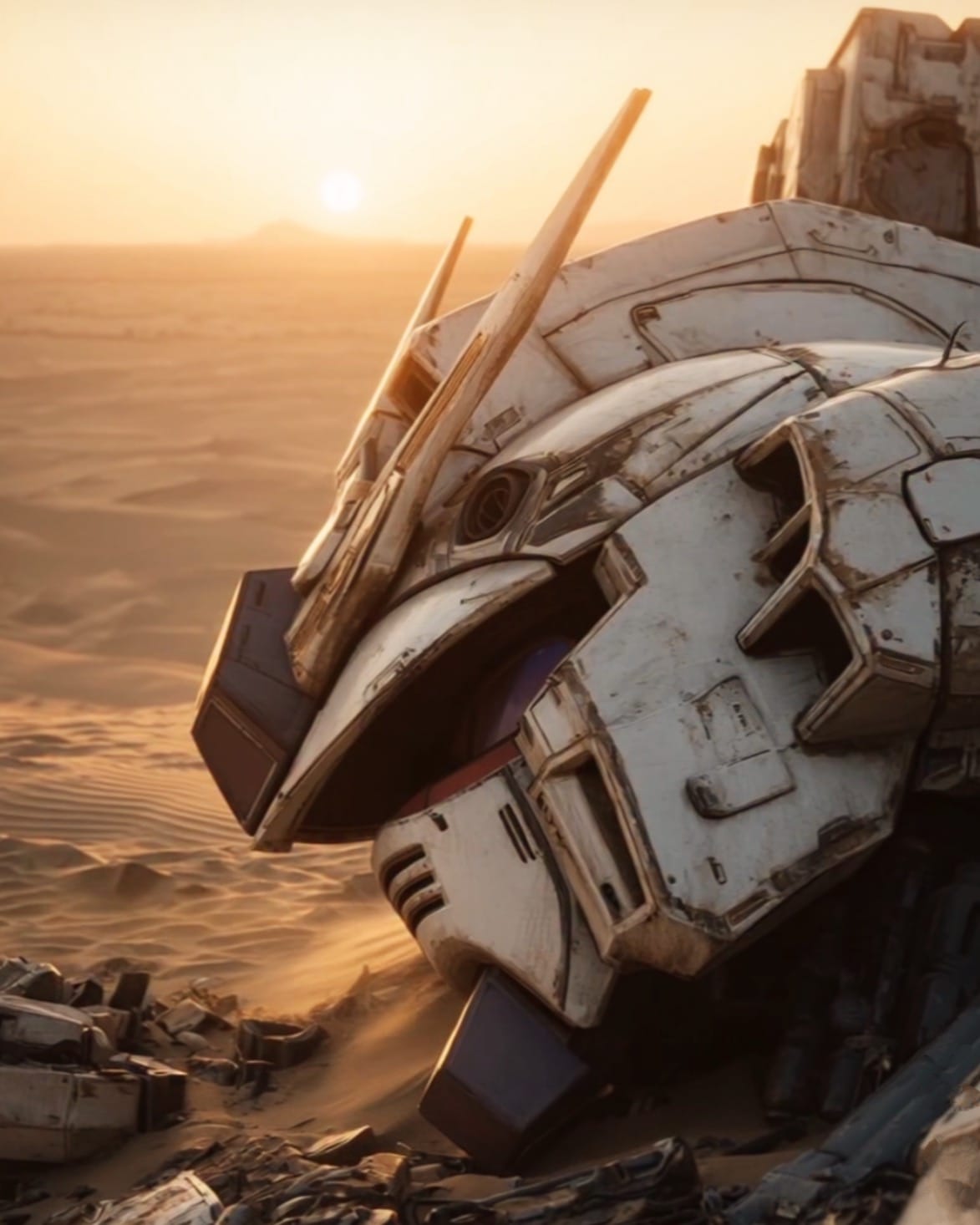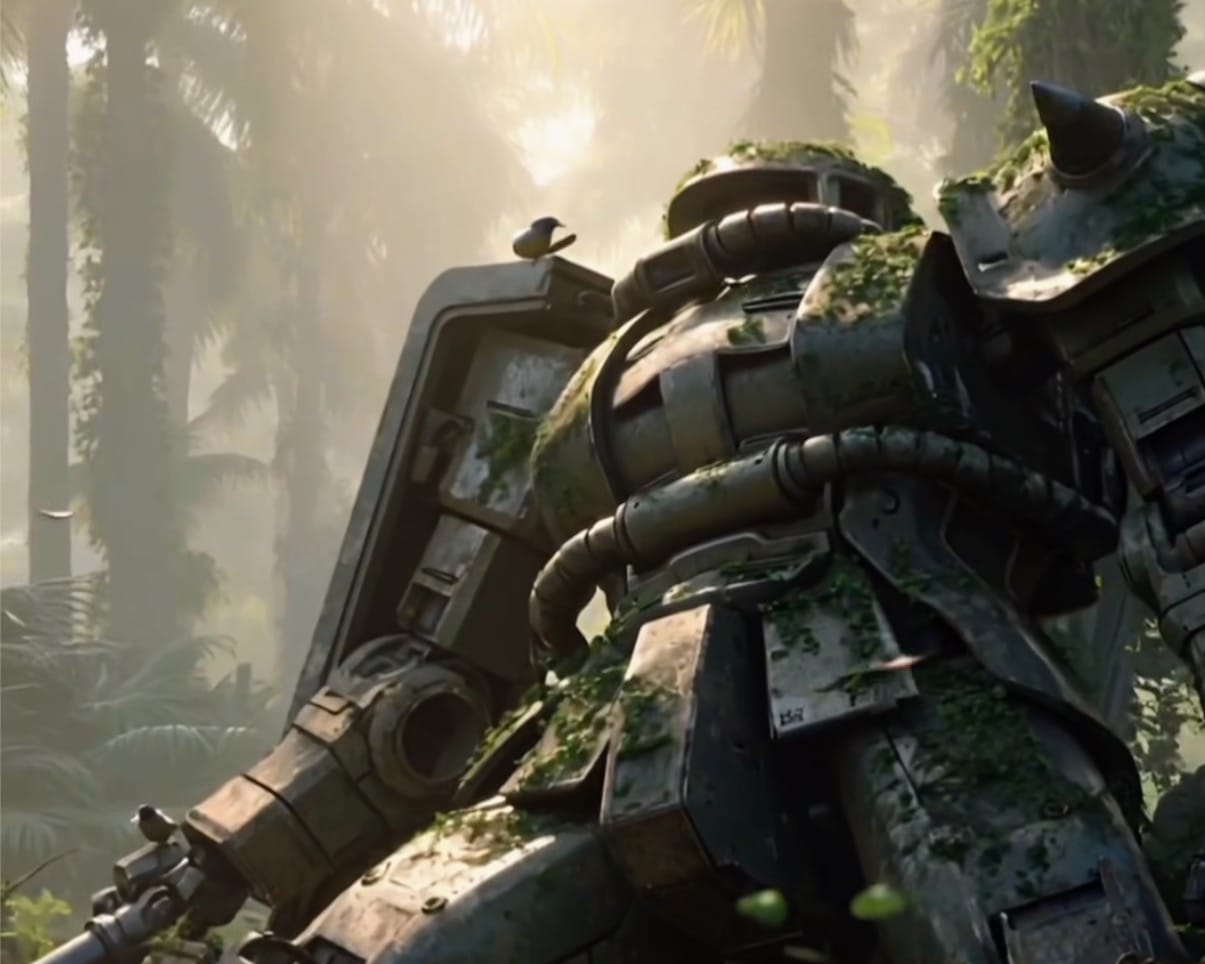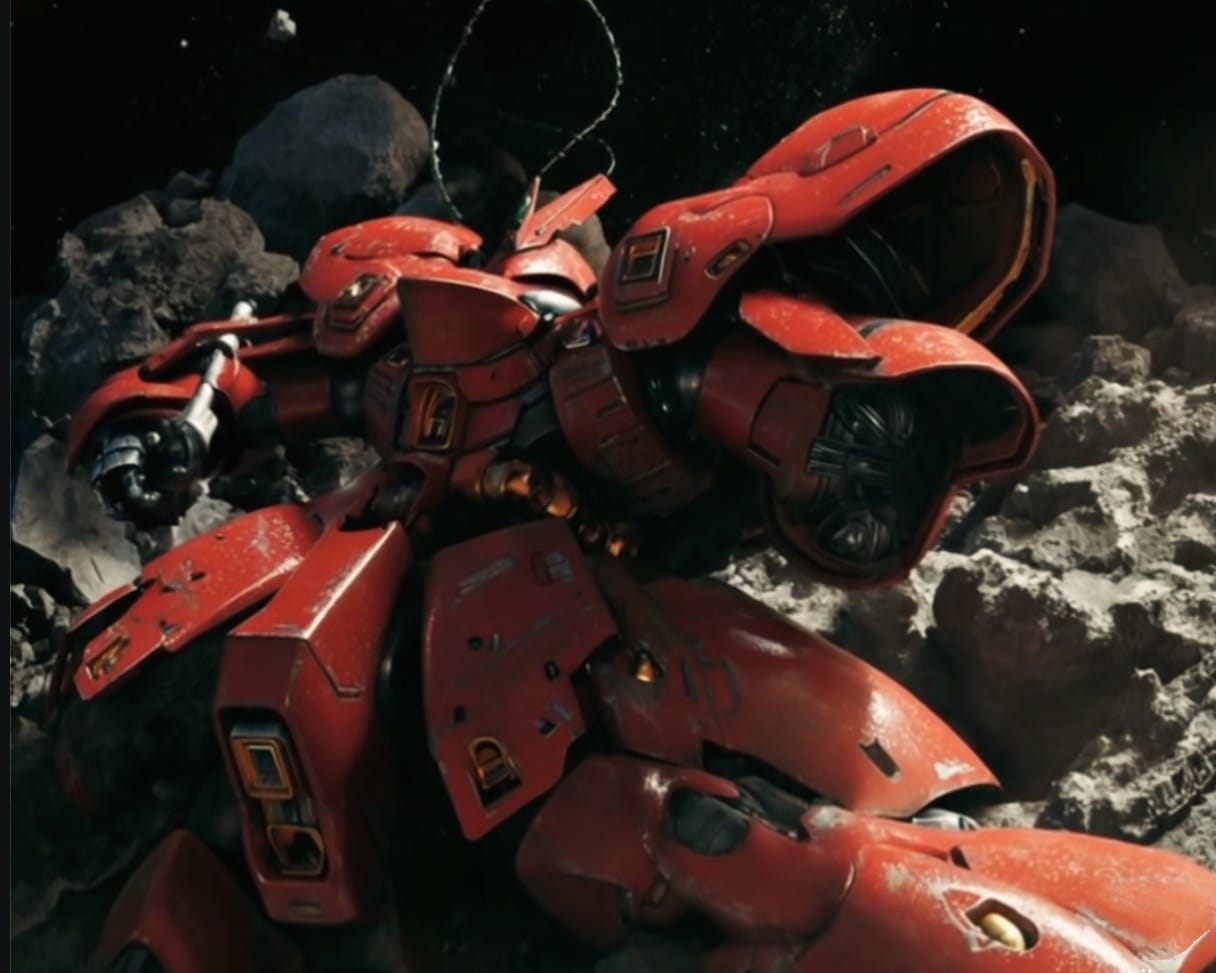Ledgers of Myth: A Designer's Essay on Mecha Borg
I started where many of us did—with Battletech, where mechs were battleships on land. Every tonnage chart was a psalm of control, every heat-sink a prayer for mastery. The pilot mattered as acolyte and priest because the cockpit was a cathedral of precision: your decisions, your initiative roll, your personal honor. It was a world where the individual still stood against the industrial storm, wrapped in fifty tons of alloyed faith.
Then came Palladium’s Robotech, where the numbers became theology. Damage versus Mega-Damage was a moral hierarchy in disguise—human flesh against god-metal. Here, agency existed only through escalation. To be relevant, you had to mechanize. Humanity was measured in hit points, and transcendence stood two orders of magnitude higher.
With Mekton, we began to dream again. Rules became lighter, more narrative. Mecha were still extensions of the self, but the machinery finally had room for melodrama, for longing. Agency was emotional now—you weren’t just piloting a machine; you were piloting your trauma. The dice were no longer about heat dissipation, but about heartbreak and resonance.
Then came Heavy Gear and Jovian Chronicles, where the dream met logistics. You got what you were issued. No heroic customization, no Newtype miracles—just whatever the quartermaster signed off. Agency shrank to tactical realism. You weren’t the shining knight; you were a worker maintaining a weapon you didn’t choose, fighting in a war you didn’t design.

Out of that realism grew our unpublished game, Mobile Suit Skirmish*, where the NERVE spiral became literal—the human mind tightening under systemic pressure. Each pilot’s competence became their undoing. The more control they sought, the more the system absorbed it. That was the inflection point: the recognition that every mecha game is secretly about futility disguised as control.
And from that recognition slouched Mecha Borg.
Here the armor is for naught. The dice are indifferent. The O’Neill Cylinder Clock ticks whether you act or don’t. There are no named suits, no paint schemes, no red-comet charisma. Just four pilots, the inexorable OCC, and a handful of rounds before the sky comes down, the mission ends, and everyone gets their last words. The machine no longer amplifies the human—it erases them in high fidelity.

Across the aisle, though, the ledgered myth continues.
Warhammer 40,000 presides like Scrooge McDuck swimming in gold—selling us heroism by the ounce. Its saints and Primarchs promise individuality within the grind of attrition. The game disguises despair beneath grandeur: you can buy your agency, assemble it in plastic, anoint it with washes and weathering powders. Every miniature is a votive candle in a cathedral of mass production. Dice pools become tithes, and the points system balances the morality of consumption. It’s not war; it’s accounting—the clash of fictional theologies.
Meanwhile, Leviathans reframes the same violence through collective inertia: crews manning flying battleships, professionalism as redemption. The locus of tragedy shifts from the lone pilot’s nerves to the crew’s procedures. The monster is no longer the machine—it’s the bureaucracy. You win by keeping the system alive a little longer. Heroism becomes efficiency; grief becomes teamwork.
Together these three—Warhammer, Leviathans, Mecha Borg—trace the evolution of agency under industrial warfare:
- Warhammer gilds it.
- Leviathans distributes it.
- Mecha Borg dissolves it.
Each keeps a ledger: points, damage, systemic pressure. Each pretends the accounting redeems the act. But numbers can’t balance the moral books; they can only make tragedy playable.

Then, by dumb luck, I found the words of Vitaly Chernenko. They landed like shrapnel and epiphany at once: a Ukrainian soldier describing a dragonfly in the trench, wings burnt by a mortar.
“The war has gotten to you as well, my friend.”
That single image collapsed forty years of game-design theory. The dragonfly was every pilot I’d ever written. The mortar was every OCC I’d ever tracked. They reminded me that even in systems designed to erase us, there’s still something painfully, stubbornly human about the attempt to keep count, to hold the line, to make meaning before the last tick.
That’s what Mecha Borg became: tragically human and humanely tragic—a record of doomed gestures, written in dice and debris.
Inspired by Vitaly Chernenko’s testimony, I offer the following:
It is dumb luck that we are here at all,
but that luck is the most human thing about us.
When the sky falls, you won’t have skin enough.
But you’ll still mark the ticking clock.
You’ll still say something before the end.
And maybe, just maybe, that will be enough.
* Unpublished due to obvious Bandai IP issues. 😄